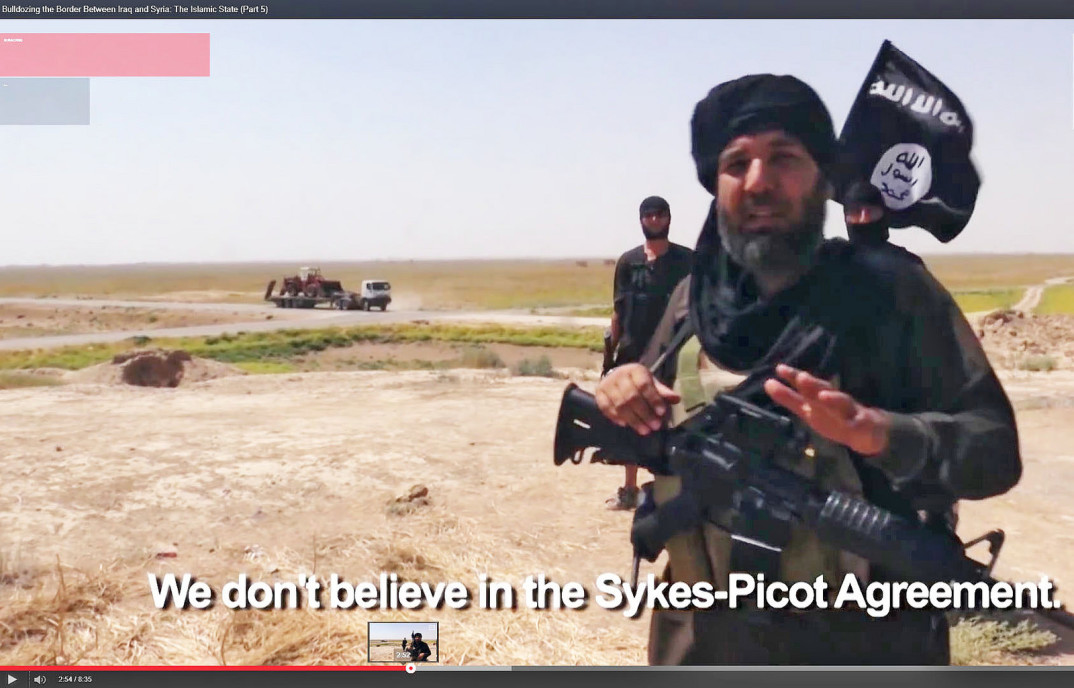Call them Daesh: Names, Meaning and ISIS
One thing that I noticed when I first heard media coverage of an Islamist group rising to power in Syria was that it was continually referred to as “the group calling itself ISIS” or “the group known as ISIL”. If it had been one media outlet or one program, it might have slipped by. But it wasn’t: it was a standardized fixture of official coverage of the group.
In recent months, particularly since the deadly Paris attacks that claimed the lives of 129, there has been a seemingly strategic shift to the word “Daesh” to describe the organization. Why does this matter? And what impact does it hold for the future of Western relations to the Middle East?
The Islamic State of Syria and the Levant and the Islamic State of Iraq and Syria are both grandiose names chosen specifically because they conjure up an image of an authoritative, centralized governing body with a measure of legitimacy.
This is noticeably different than its predecessor, the group Al-Qaeda, whose name means “foundation” or “base” in Arabic. As such, their names accordingly reflect the difference in their ideological purpose.
The archetypal terrorist organization, Al-Qaeda, portrays to followers through its name the idea of a safe haven from which leaders could direct global terrorist cells and strike with impunity. Al-Qaeda garners mass media attention and spread fears through its dual image of invisibility and omnipotence, favoring the theatrics of bomb blasts over mass shootings (unlike Daesh). Their aim is war with the decadent West.
Daesh’s goals are similar, but different. Like Al-Qaeda, they seek to spread fear throughout the West and through that fear, prompt government repression and a shift in public sentiment against Muslims that will ultimately lead to radicalization and uprising of marginalized Islamic communities.
However, unlike Al-Qaeda, which sees itself as a strike force, Daesh desires to establish and hold territory as a caliphate. It seeks legitimacy and, for the people under its boot and the outsiders poised against it, respect of its authority as an armed, independent state.
And therein lies the nature of its name. Saying the group “referred to as ISIS/ISIL” is an attempt to deny the organization the respect normally reserved for nation states. Attaching a qualifier to the group’s preferred name as a way to undermine its international legitimacy, however, is as hopeless as expecting a military solution to the quagmire of underlying economic, social, political, and religious conflicts that brought about the group’s existence.
So call them Daesh. Deny them the satisfaction and power that comes from international recognition. It is a terror group, not a state. Daesh, in Arabic, alternatively means to “tread underfoot or crush” or “one who sows discord”. This is an important distinction, because looks past the brand image that Daesh has created for itself.
Furthermore, it draws a distinction between those perpetrating the atrocities in Syria and Islam as a whole. It denies the group authority and legitimacy, and it is a grounding to the reality of the situation, that vast swathes of territory in Syria and Iraq are not held by a caliphate with the mandate of heaven, but a ragtag operation of former military officers, disillusioned soldiers, profiteers, mercenaries and outcasts holding power only through brutality.
The distinction is important, because names have power and perception can matter more than reality. ISIS is a brand, and by referring to it as such, we perpetuate it.





